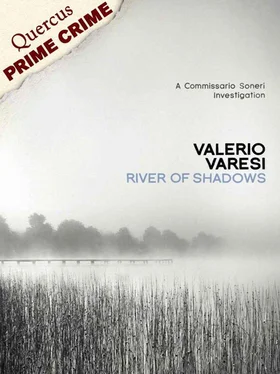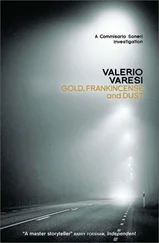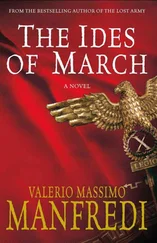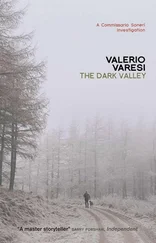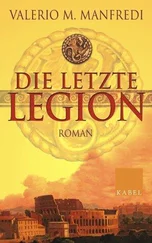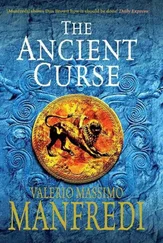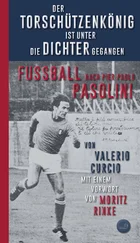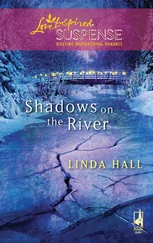Valerio Varesi - River of Shadows
Здесь есть возможность читать онлайн «Valerio Varesi - River of Shadows» весь текст электронной книги совершенно бесплатно (целиком полную версию без сокращений). В некоторых случаях можно слушать аудио, скачать через торрент в формате fb2 и присутствует краткое содержание. Жанр: Полицейский детектив, на английском языке. Описание произведения, (предисловие) а так же отзывы посетителей доступны на портале библиотеки ЛибКат.
- Название:River of Shadows
- Автор:
- Жанр:
- Год:неизвестен
- ISBN:нет данных
- Рейтинг книги:5 / 5. Голосов: 1
-
Избранное:Добавить в избранное
- Отзывы:
-
Ваша оценка:
- 100
- 1
- 2
- 3
- 4
- 5
River of Shadows: краткое содержание, описание и аннотация
Предлагаем к чтению аннотацию, описание, краткое содержание или предисловие (зависит от того, что написал сам автор книги «River of Shadows»). Если вы не нашли необходимую информацию о книге — напишите в комментариях, мы постараемся отыскать её.
River of Shadows — читать онлайн бесплатно полную книгу (весь текст) целиком
Ниже представлен текст книги, разбитый по страницам. Система сохранения места последней прочитанной страницы, позволяет с удобством читать онлайн бесплатно книгу «River of Shadows», без необходимости каждый раз заново искать на чём Вы остановились. Поставьте закладку, и сможете в любой момент перейти на страницу, на которой закончили чтение.
Интервал:
Закладка:
“Do you believe there is any other solution?”
“Possibly not. But someone knows something and is saying nothing.”
“Tonna didn’t have many friends in the village… Nobody got close to him.”
“Except for Don Firmino and Maria of the sands. She’s outraged with you lot,” Soneri said. “Because you took away her island.”
“Do you think we don’t know! Her beloved little island!” Barigazzi said in a rasping voice. “She was a Fascist spy and had two villagers shot. And that wasn’t all. She started spying on people who went up and down the Po. We should have drowned her,” he said, making a signal to the landlord with his thick thumb.
“Whose house was it that the Fascists torched?”
Barigazzi stared at him, pushing his hat back on his head. “Nothing was torched on this side,” he said at last.
“And on the Lombard side?”
“I have no idea. You don’t concern yourself with fires when there’s a river in between.”
He raised a glass of Lambrusco which was as dark as black pudding. The commissario did the same, and when both had put their glasses down, he said: “Have there been any robberies in the flooded houses?”
“We’ll find out when the river level drops, but I don’t think there’s much to steal around here.”
“This evening I saw a boat among the poplars, in the inlet beyond the stone-crushing plant.”
Barigazzi assumed a puzzled expression, and noticing Soneri staring hard at him he made an effort to appear calm. “Obviously somebody is still out hunting. After a flood, the embankments swarm with insects which attract pheasants and grouse.”
“There was one pheasant, but the hunter made off as soon as I caused it to get up.”
Barigazzi said nothing, then changed the subject: “What did that savage tell you?” he said, meaning Maria.
“She said that, through the co-operative, you obtained licences to dig up the sand deliberately so as to shift the course of the water, so that it would erode her island. And that when she was forced off the little land she had, you made her walk in front of you while you chanted ‘Bandiera Rossa’.”
“Those were memorable moments, like when we shaved her head after the war,” Barigazzi exulted, evidently still bent on revenge.
“Did she and Anteo live as man and wife?”
“Two Fascist bastards, and she the worst of the two.”
Someone had turned up the volume of “Otello”, which occasionally drowned out the hubbub in the room.
“I don’t believe it was a hunter,” Soneri said, returning to the subject which was foremost in his mind.
“Who do you think would be going down to the floodplain in the dark in this season?” Barigazzi said. “It could have been someone going back to see their house. There are some people who tie their boats to the bars on the window and move upstairs. The water didn’t get that high.”
“He wouldn’t have made off.”
The old man sat a moment in thought. The wine glass seemed to disappear inside his huge oarsman’s hand.
“There are some sinister characters along the Po. They keep away from everybody else, like beasts in the woods. The only time you run into them is when your paths cross, but then each goes in his own direction,” he said, but with little conviction.
The commissario had the impression that Barigazzi was just as curious about the episode. He was about to take out his mobile and call Maresciallo Arico, but he thought better of it. He would play this his own way, and was more persuaded that this was the right course as he looked into the old man’s face, where a trace of surprise was still evident.
“Don’t brood too long over it,” Barigazzi said in an attempt to conceal his own embarrassment. “Little by little, with the onset of cold, the waters will go down and become clearer. At that point, all will be revealed.”
It was not the first time Soneri had heard that said, but the old man had spoken with a kind of sneer, curling his moustache like a grandfather playing with his grandchildren.
Soneri, as when he almost jumped into the flood to pursue the boatman, or when a few seconds earlier he had been about to call Arico, now felt his instinct at odds with his self-control. Giving in to instinct would have meant taking Barigazzi by the scruff of the neck and shaking him. As a young ispettore he would have sprung out of his seat and threatened him. He was not at his best in those moments, and by now he had learned to stay calm, to take it easy and not betray his intentions. He could not be sure if this was down to experience or middle-aged cowardice, but he had decided to suspend his enquiries on that topic.
The volume of “Otello” was turned up even more as the din within the room rose. The atmosphere was growing more heated as second bottles were consumed and the general merriment increased. Every so often one of the customers would rise from his seat to accompany the tenor and give voice to as much of the aria as he could recall. It was said that the landlord kept his hearing aid switched off precisely so as not to hear the voices of great singers drowned out by over-excited tenors under the influence of wine. He had been listening to that noise for forty years. At the climax of the opera, Soneri became aware of other dissonant notes, those of “Aida” from his mobile.
“Where are you, in a theatre?” Juvara said, somewhat simple-mindedly.
“Do you really think I would be in a theatre?”
“I can hear music…”
“I’m eating in a place where they love opera,” Soneri said irritably, wondering whether Juvara could tell an operatic aria from a Gregorian chant.
“Commissario, we can’t solve that puzzle.”
“You mean the note?”
“Exactly. The only thing we’re sure about is that we’re dealing with a graveyard. There is nothing else like it divided into lines, squares and sections.”
“And as it happens, Decimo is dead…”
“The problem is that even small cemeteries have this same kind of sub-division and in the Po valley there are hundreds of them.”
“So how are you going about it?”
“We’re going through them one by one. I mean, those in the provinces on the banks of the Po.”
“And so far no match?”
“Once or twice, but they correspond to people who died many years ago and there is no apparent connection.”
“Well, I’m afraid that’s the only way of dealing with it,” Soneri said briskly.
“That much we can agree on,” Juvara snorted, and was gone.
7
He was in his car in front of the Italia, whose shutters had been lowered, and the piercing hoot of an owl reached him from down by the river. Owls called to the dead, he remembered being told. As he drove up the embankment, the bird appeared from among the poplar trees and its call seemed to be aimed at the lamp over the boat club, a faint light shimmering in the mists and looking like an illumination at a vigil or at the recitation of the rosary. He thought, giving his imagination rein, that the owl was chanting for all the lives sacrificed on the river, perhaps even for Tonna, who might be somewhere underwater, or on the sandbanks or in the muddy depths of some inlet.
The mist was less dense now, diluting the still darkness of the autumn night. As he drove towards the city, Soneri could not escape that final vision of the sleeping town, sunk in the gloom of the embankment’s long shadow, with the hoot of the owl hovering over everything like a preacher’s warning, solemn and sinister in the silence. “When the waters drop, everything will be revealed,” Barigazzi had said, twisting his moustache. What did he mean — that it was only a question of time? Or that there was something he knew? Or was it just long experience?
Читать дальшеИнтервал:
Закладка:
Похожие книги на «River of Shadows»
Представляем Вашему вниманию похожие книги на «River of Shadows» списком для выбора. Мы отобрали схожую по названию и смыслу литературу в надежде предоставить читателям больше вариантов отыскать новые, интересные, ещё непрочитанные произведения.
Обсуждение, отзывы о книге «River of Shadows» и просто собственные мнения читателей. Оставьте ваши комментарии, напишите, что Вы думаете о произведении, его смысле или главных героях. Укажите что конкретно понравилось, а что нет, и почему Вы так считаете.
